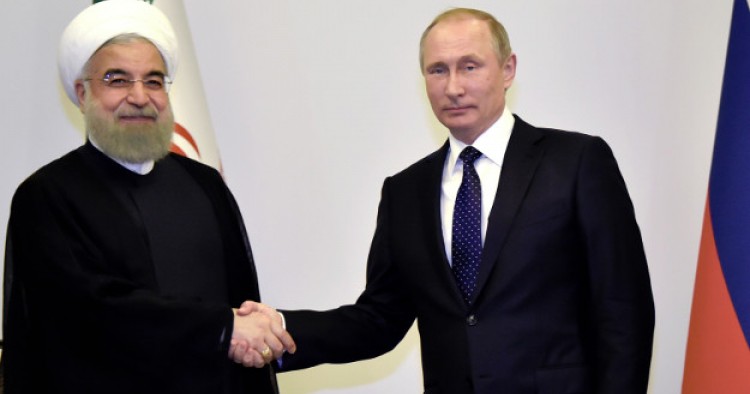A joint operational command center of Syrian President Bashar al-Assad’s foreign backers has warned that it will forcefully respond to any future U.S. military attack against Syria, the Iranian media reports. The command center consists of Russia, Iran, Hezbollah and other Iran-controlled Shiite militia forces. According to Fars News Agency, which is affiliated with the Islamic Revolution Guards Corps (I.R.G.C.), the joint command issued a statement condemning the U.S. strikes in Syria and claimed that the U.S. crossed “the red lines.” The statement added that the Syrian government and its foreign allies are aware of and closely monitor U.S. actions and goals in northern Syria and northwestern Iraq – without providing details.
Comment: Iran and Russia have cooperated closely to prop up the embattled regime of Bashar al-Assad over the past two years. During his July 2015 trip to Moscow, it was Iranian Quds Force Commander Qassem Soleimani who convinced the Kremlin to militarily intervene in Syria to save Assad – a development that rapidly changed the balance of power in Assad's favor and resulted in immense human suffering. Without the Russian air power and tens of thousands of militiamen recruited, trained and funded by Iran, the Assad regime would have survived.
Recently, there was a growing concern in Tehran that Moscow might strike a grand bargain with Washington and betray Iran in Syria. But the U.S. missile attack on Friday appears to have brought Iran and Russia closer, at least in the immediate term. Tehran will most likely try to capitalize on the latest rift between Moscow and Washington to strengthen it’s the Kremlin. On Sunday, Iran’s President Hassan Rouhani had a phone conversation with his Russian counterpart Vladimir Putin and the two leaders vowed to further boost their cooperation in Syria.
Iran’s Foreign Minister Javad Zarif said last month that the Islamic Republic would allow Russia to use Iranian bases “on a case by case basis” to launch air strikes against “terrorists” in Syria. The Russian military briefly used Iran’s Hamadan Air Base last August to for Syria operations, but the arrangement was canceled abruptly as a result of a backlash inside Iran after Moscow publicized the secret agreement. The Iranian military leaders may now try to convince the critics inside Iran that closer Russian-Iranian cooperation is needed to counter American actions in Syria. Tehran may also try to use the latest tension between Moscow and Washington to encourage the Russian government to sell more advanced weapons to Iran.
The Middle East Institute (MEI) is an independent, non-partisan, non-for-profit, educational organization. It does not engage in advocacy and its scholars’ opinions are their own. MEI welcomes financial donations, but retains sole editorial control over its work and its publications reflect only the authors’ views. For a listing of MEI donors, please click here.













